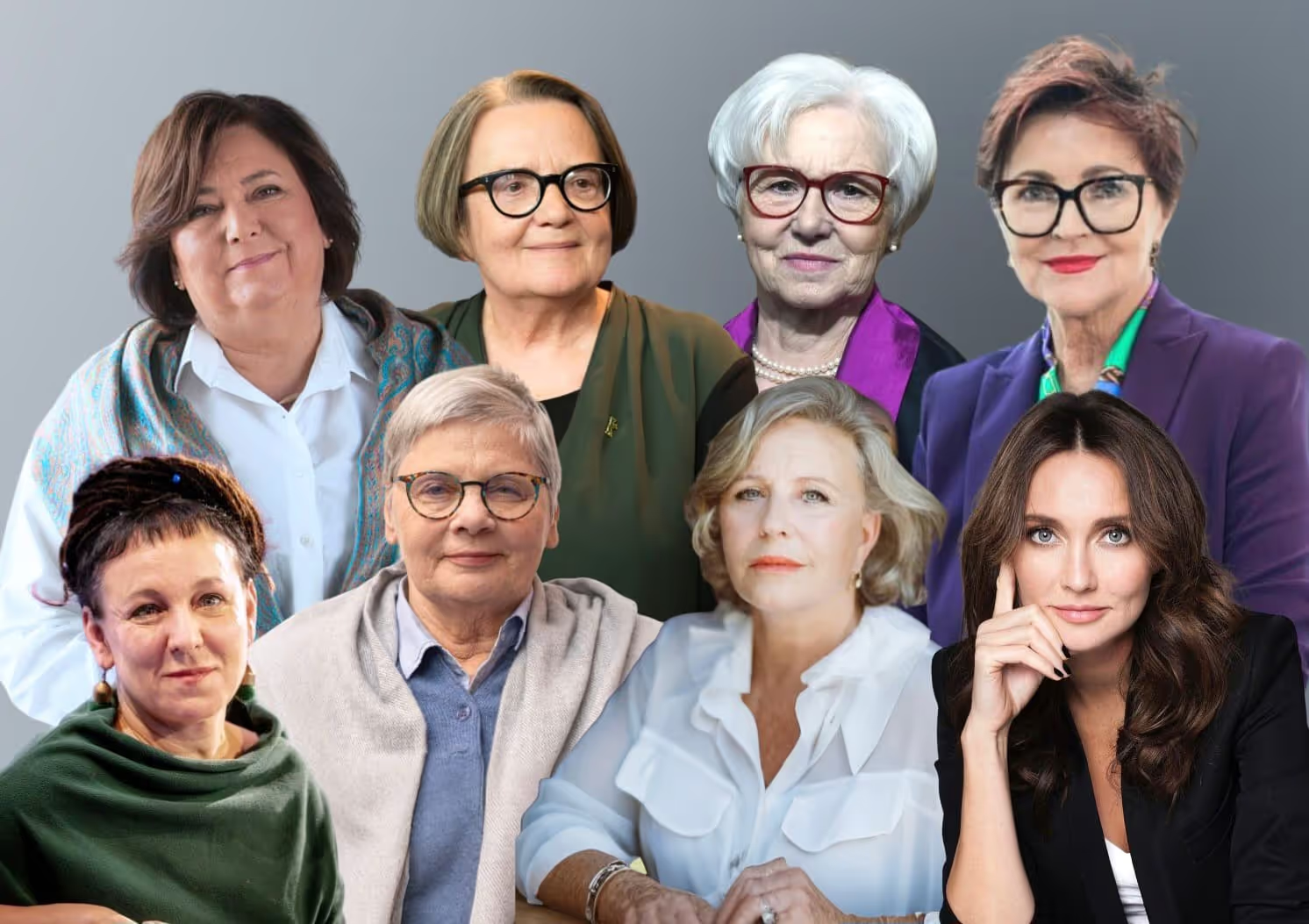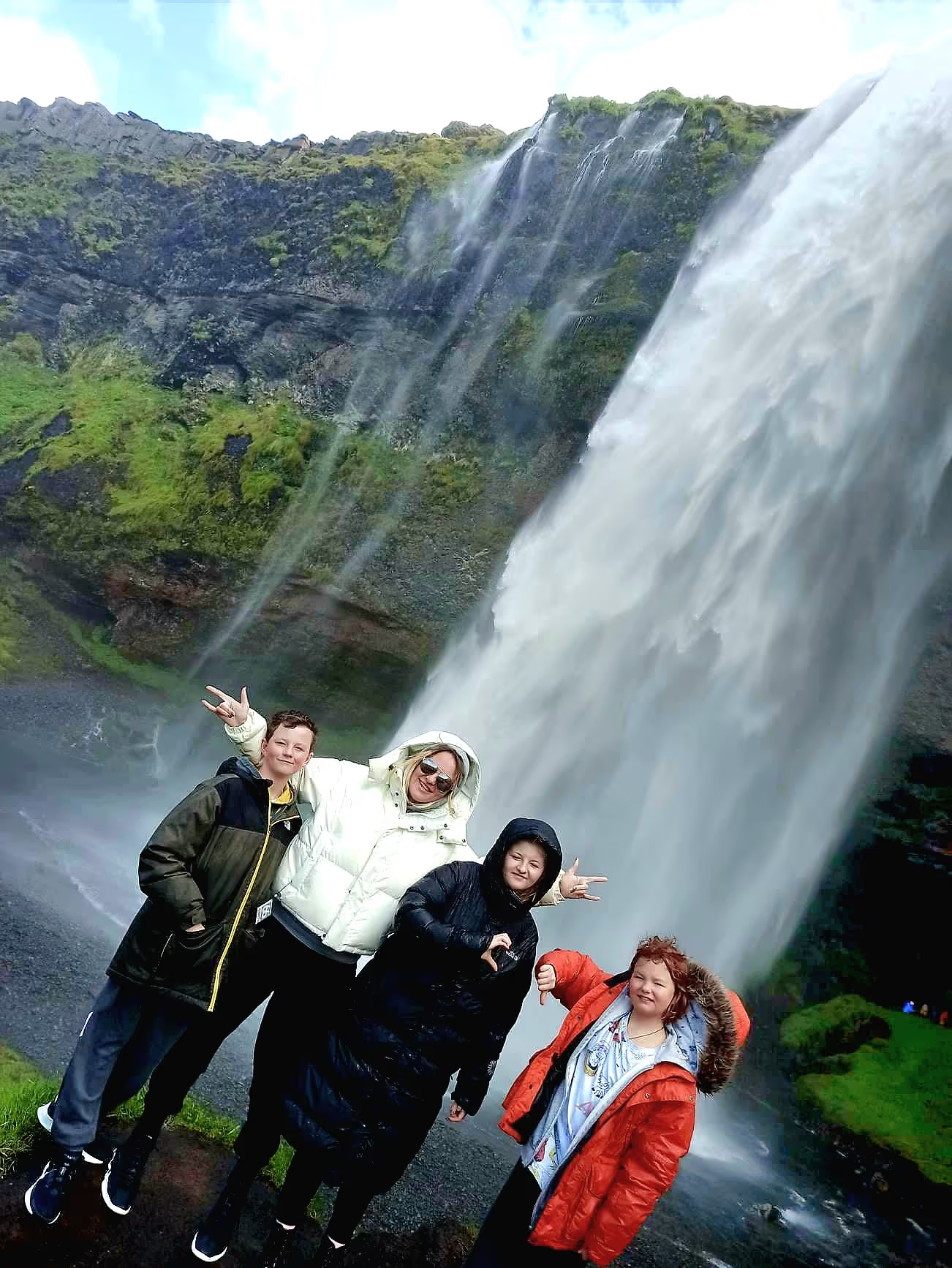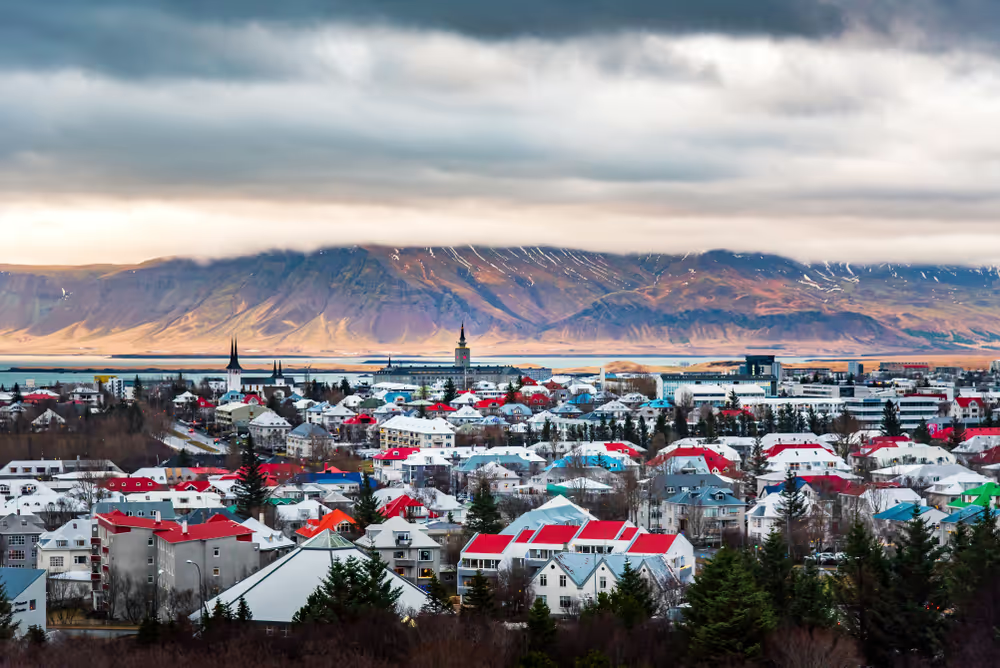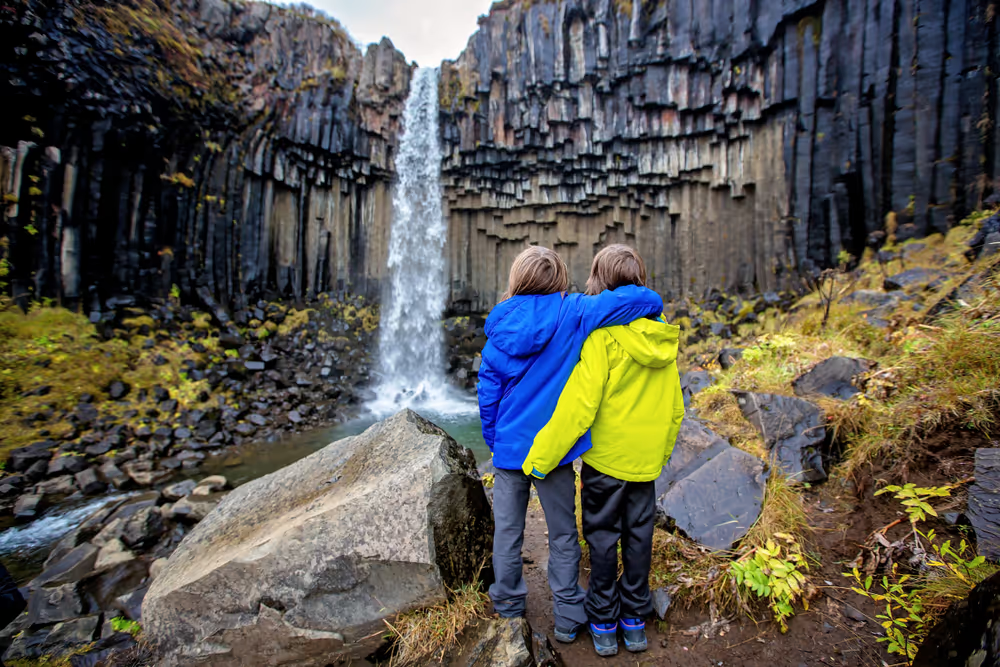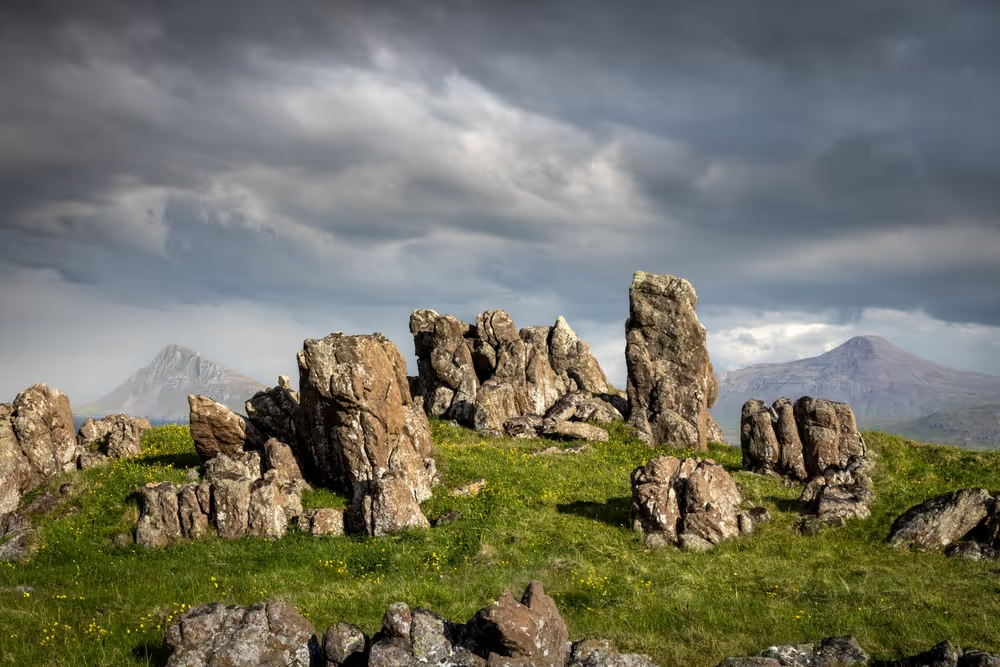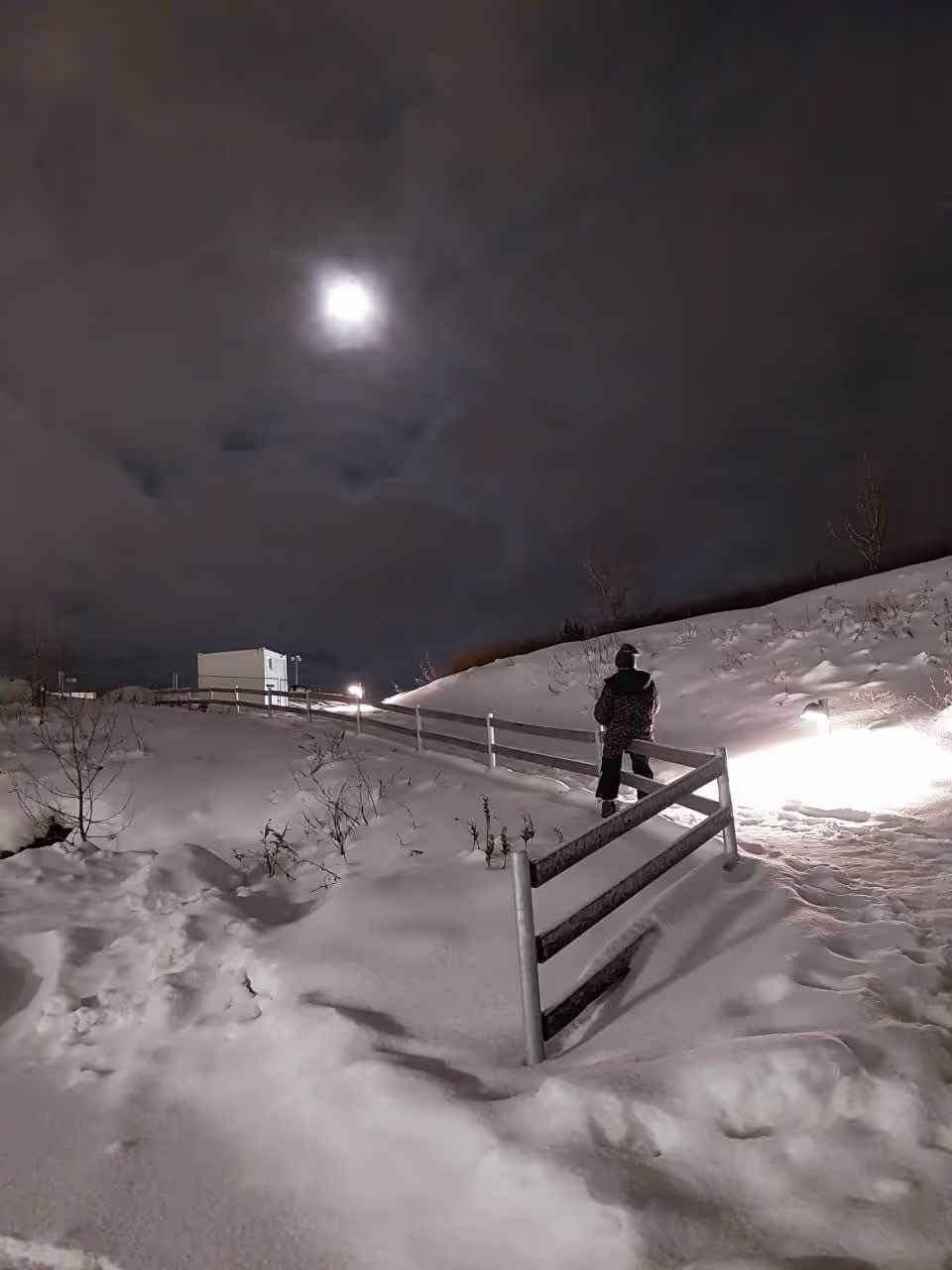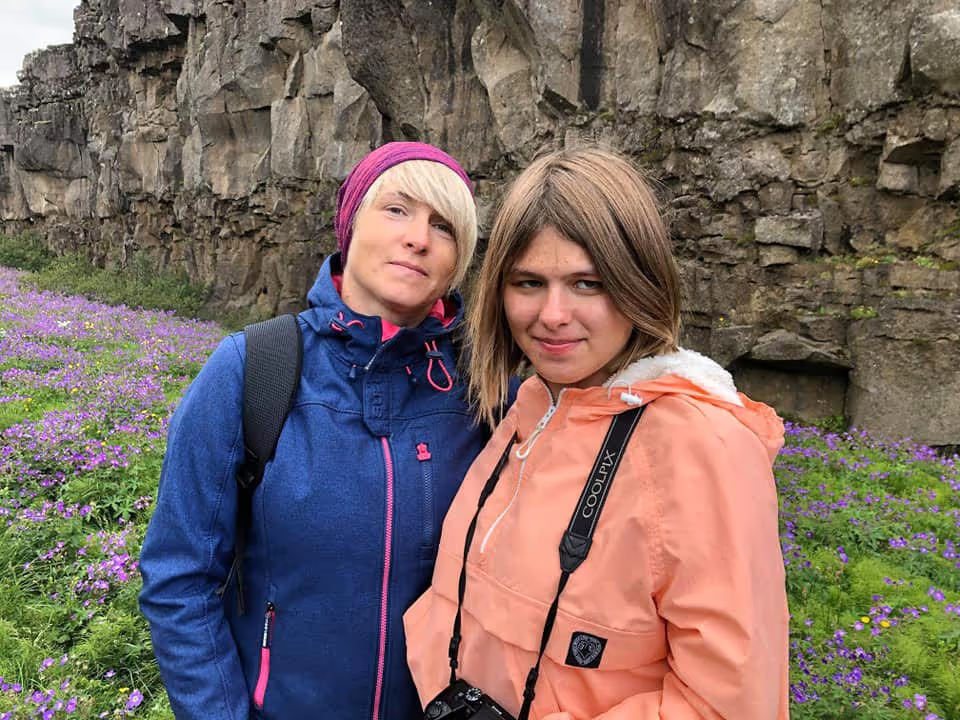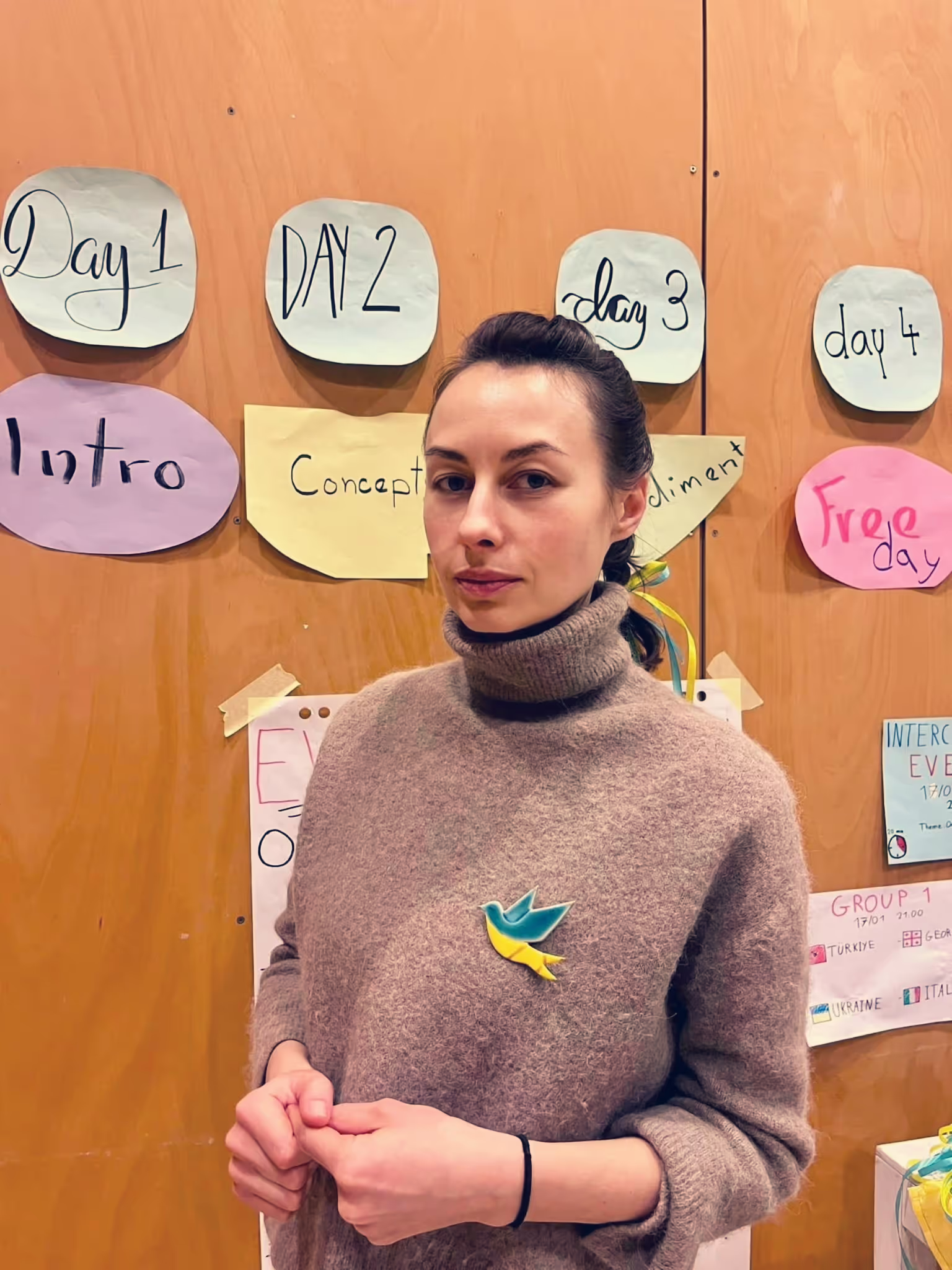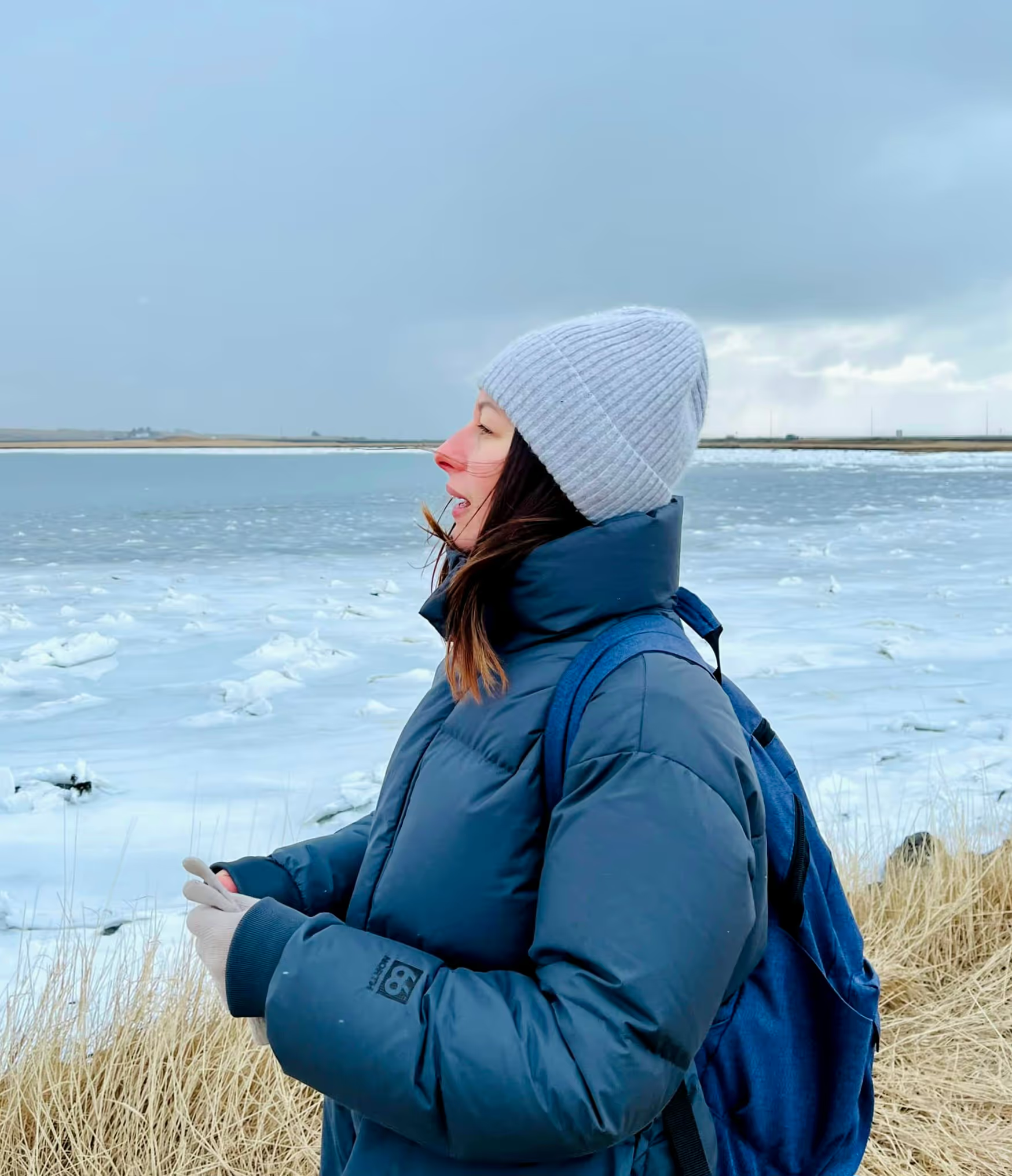Support Sestry
Even a small contribution to real journalism helps strengthen democracy. Join us, and together we will tell the world the inspiring stories of people fighting for freedom!
«Women's Territory» is a nationwide organisation that has united women worldwide. Over nearly 11 years of existence, they have implemented dozens of projects, including cultural ones. The head of the organisation, Liliia Shevchenko, believes that a person who knows their roots automatically understands who they are and what they must do to preserve their country. The full-scale war has altered the organisation's operations. They have already delivered over five hundred tonnes of humanitarian aid to military personnel and civilians. They support families of prisoners of war and help women who have experienced violence. Moreover, they are expanding their presence in Europe.

Nataliia Zhukovska: Ms Liliia, you are the head of the «Women's Territory» organisation. What is this territory like?
Liliia Shevchenko: Our nationwide public organisation «Women's Territory» was founded by ideologically driven women who live and breathe Ukraine. This is not an empty phrase but the pure truth. «Women's Territory» is neither defined nor limited by borders. It is not only the territory of those residing in Ukraine but also the territory of women worldwide, especially now, when millions of Ukrainian women, fleeing war, have found temporary refuge in many European countries. We want to help them systematically. So, we decided that «Women's Territory» would now operate under the umbrella of the host country and its laws. Currently, work on the documents for «Women's Territory» in Poland is nearing completion. We have held talks with representatives from the Polish Ministry of Social Policy and with relocated Ukrainian businesses and Polish businesses. How will they help Ukrainian women in Poland? Primarily by organising Sunday schools. This is important so that children while learning about the culture of their host country, do not forget their Ukrainian heritage. Given that Ukraine is in a full-scale war and most funds from businesses and ministries are allocated to military needs, there is insufficient funding from the Ministry of Education for books and educational materials for children abroad. One of the tasks of «Women's Territory» is not only to establish Sunday schools but also to print books. We have already held talks with the «Gutenberg» publishing house. We will distribute books for free, starting with our Sunday schools.

We already have a developed base, so organising work in Poland will not be difficult. One of our members opened the first art school in Warsaw at the end of 2022 and has already received small grants from the local Polish authorities. The school offers free art classes to both Ukrainian and Polish children.
One of the messages of «Women's Territory» is that we not only take from the countries that shelter us but also give to them
We have provided Europe with qualified specialists. Due to the war in Ukraine, many educators, medical professionals and managers moved to the EU. Many of them have already had their diplomas recognised. For instance, our member, who led «Women's Territory» in Dnipro, now lives in Gdansk, has confirmed her qualifications, and is a qualified lawyer. Her mother also verified her diploma and works as a dentist. So, we offer our knowledge and services to the Polish people as well. We want the Poles to understand that they do not only give but also receive. This will also be one of the tasks of «Women's Territory» in Poland.
We will also focus on women's leadership and gender issues. A woman must understand her status and significance in society.

How has the organisation's work changed since the start of the full-scale war?
«Women's Territory» shifted 90 per cent towards volunteer activities. In Poland, for example, we partnered with several Polish foundations that had a 400-square-metre volunteer warehouse in Warsaw. We are grateful to the Poles for covering its rental costs for an extended period. It was packed to the ceiling with humanitarian aid, ranging from clothing and food to expensive medical supplies, which we distributed to Ukrainian hospitals. For example, we had diffuser devices, each costing around 2500 euros, with over a thousand in stock. We equipped hospitals with beds, X-ray machines, and vitamins. Both Ukrainians and Poles worked at the warehouse. We dispatched trucks loaded with aid based on recipients' requests and provided support to relocated family-type children's homes and care facilities for the elderly. We received tourniquets and body armour and raised funds for drones. We did not merely adapt to new challenges - we also helped others adapt to them.

Who are the members of your organisation?
There are around two thousand of us. There are women, heads of departments, who have their own public organisations and foundations. For example, our member is Iryna Mikhniuk - a widow, the wife of a fallen Hero of Ukraine. Since 2014, she has headed the organisation «Wings of the Eighth Hundred» - it consists of widows, wives of the fallen, and children. In Ukraine, there are already 19 officially registered branches of ours. The team includes women from various professions and financial backgrounds, but with a shared ideological mindset and vision. There are also military personnel, such as Viktoria Khrystenko, who was the first adviser to the Admiral of the Ukrainian Navy.
In my team, there is a board member of «Women's Territory» from Donetsk, Alina Khaletska, who was forced to flee her native city. Her family had a unique background. Her husband worked for the Donetsk administration, and she herself is a lecturer, professor and academician. They left everything behind when they fled. Upon arriving in Irpin, they worked hard to save money and eventually started purchasing a flat. Sadly, during the full-scale war, it was destroyed by an enemy shell. They endured the occupation in Irpin. In other words, they have lived through occupation twice in their lifetime. This woman was offered work abroad. Where do you think she is? In Irpin. She does not wish to leave Ukraine.
What problems do women approach you with?
Many women joined us when we became part of the coalition «Women, Peace, Security». These are activists fighting for women's leadership and supporting victims of violence. In Ukraine, this remains a major issue, especially in places like Bucha and Irpin. You are likely familiar with some of these stories. There is much I know but cannot share publicly. Our agreement is to not speak of experiences unless we were participants. I am a witness. These are stories lived by women, girls, or children. They share their stories themselves if they wish to. All stories are heavy. How do we support them? I always advocate for mutual assistance and supporting one another. It is crucial to speak with them very carefully, as every word can be traumatising.
We help them regain their footing, providing a sense of sisterhood and the reassurance that they are not alone - that we stand together
We stress that anyone could find themselves in a similar situation. Our message is one of solidarity. Sometimes, we involve these women in processes by seeking their help to show them they are needed. Engagement, even minimal, can serve as a distraction and relief. We have no formal programme for this, our approach has been refined over many years.
Additionally, through a memorandum of cooperation with municipal employment centres, we assist women in retraining and finding jobs. We collaborate closely with the Ministry of Veterans. Many of the women in «Women's Territory» are defenders who were once civilians. We were the first to help sew military uniforms and undergarments for women. We also sourced anatomical body armour specifically designed for them.
What has the organisation accomplished during its existence?
Our lives are now divided into «before» and «after» the full-scale war. Prior to it, we had a powerful project that united Ukrainian children living abroad. We also established the International Festival of Cultural and Creative Industries, known as «Women's Territory», which we later renamed «Masters' Territory». If not for the full-scale war, this festival would have received funding from the Ministry of Culture and Information Policy. It was a platform that elevated Ukrainian crafts, demonstrating that Ukrainian products are not merely sold at fairs and markets, but even in five-star hotels. For now, this project has been put on hold. Today, we focus on uniting Ukrainian women abroad.
We strive to ensure that Ukraine is not forgotten. Our initial focus is on registering «Women's Territory» in Poland and France. Next, we plan for Belgium, Switzerland, Germany and Spain
We have provided female defenders with over 1200 boxes containing first-aid kits, vitamins, special olive-based creams to prevent skin cracking and even perfumes.

Every woman should feel like a woman, no matter where she is. We even provided hair dye tailored to their colour types. Once, I asked the women to take photos for a media campaign to raise funds for these boxes. They sent back pictures - clean, with hairstyles and manicures. It turned out they had travelled to a district centre and, using their own money, found skilled manicure artists and hairdressers. They told me, «Lilia, when we opened these boxes, we felt like we were at home». You see, they received a psychological breath of happiness.
Your organisation has helped women with children evacuate from dangerous areas to avoid occupation. How did this happen, and how many people have you assisted?
We do not have exact numbers on how many people we have helped. We evacuated people from Melitopol, Berdyansk, Kherson, Donetsk region, and the left, already occupied, bank of the Zaporizhzhia region. Of course, we were assisted by the military. I am unsure if I am allowed to disclose the details of every rescue story. I will share one - the story of a mother with two children who were leaving Melitopol. At that time, her daughter was 15, and her son was three years old. Their father was in the Armed Forces of Ukraine. If the Russians had found this out, they would have been executed. She instructed her children to remain silent and, if necessary, to respond only in Russian. On their way, Russian soldiers armed with weapons boarded the bus to conduct checks. Approaching them, the muzzle of a rifle hanging on one soldier's shoulder accidentally pressed against the child's head. The boy was so terrified that he wets himself to this day. They were interrogated, their phone SIM cards were examined, and the family endured multiple rounds of hell. It later turned out they were fortunate that the child was not undressed. Only later did the mother notice a hidden sheet of A4 paper on her son's chest. On it was a drawing of his father in military uniform, with a flag and the words «Glory to Ukraine!». The boy had placed that drawing there himself. To him, it represented Ukraine, his life. If the Russians had seen that drawing, they would have been executed. We have many such stories.
Do you keep in touch with the families you have assisted?
Someday, I will revisit those lists. But for now, our priority is to officially establish «Women's Territory» in Europe and America. We are resilient, genuine, and active. We are women accustomed to giving, not taking. Perhaps in time, I will become more interested in the fates of those we have helped. However, I often question whether reaching out would be beneficial or if it might unintentionally bring harm.
You travel abroad frequently. What do you talk about there, how do foreigners react, and what interests them most?
I talk about the solidarity and resilience of the Ukrainian people. I share the harsh realities of war we face, the immense challenges, and our efforts to overcome them. My message is always framed to emphasise the need for support in these efforts. I say, «We are taking action, not standing by. Help us in this war in any way you can - through expertise, humanitarian aid, or military support». We consistently highlight the need to support the Ukrainian army, and I know our message is being heard.

«Women's Territory» supports prisoners of war and continuously participates in various campaigns. Do you believe these efforts contribute to exchanges?
Absolutely. We have been supporting the families of prisoners of war since the start of the war in 2014. We organise events with the mothers, wives, and children of captured marines. Do you remember those taken prisoner in Crimea at the beginning of the war? We brought the mother and daughter of one of the marines to the UN so that their speech could raise awareness and tell the truth about the war in Ukraine. Any information campaign must be planned and ongoing. Such initiatives not only ensure that the world does not forget those in captivity but also help the relatives of prisoners of war feel they are not alone, preventing them from being lost in their grief. Tragedy unites. We have many poignant stories related to the return of prisoners of war. Recently, there was a soldier on the list who had been eagerly awaited by everyone. They thought he had come back. However, it turned out it was not him. The surname was the same, but the first name was different.
You also conduct training sessions for government institutions on communication with veterans and their families. What are the key principles you focus on?
I will illustrate with the example of the Kyiv City Employment Centre. Engaging with a military veteran, a defender or a servicewoman, requires a particular approach. For instance, we - as empaths - often feel the urge to approach a soldier on the street and say, «Thank you for your service. Glory to Ukraine». We might want to hug them and say, «You are a hero!». Yet, almost none of this should be said or done. These are triggers. If you call them heroes, they often do not perceive themselves that way. This is why we educate not only employees of state institutions but also the civilian population. The most important thing is teaching how to understand and engage with these individuals. For example, when they come to the Kyiv City Employment Centre, the manager who interacts with them must be highly qualified and aware that every soldier might experience flashbacks. We train them to pay attention to facial expressions, eyes, and behaviour. Employees of such institutions must be prepared for any possible scenario because almost all soldiers have experienced concussions. Furthermore, there must be barrier-free access and inclusivity.
Veterans must be actively involved in rebuilding Ukraine after the war, not left idle at home
Sociologists warn of a crisis facing the country after the war, particularly a demographic one. Do you think Ukrainian women will return from Europe after the victory? What steps are needed to ensure this?
I am unsure if I can speak openly about this, but yes, we are facing a demographic crisis. A baby boom will not be enough to solve this. We are exploring solutions because it concerns our future. Will women return from abroad? The longer the full-scale war continues, the less likely it becomes. Many divorces are happening now. Numerous women have adapted to their children's needs, and most of these children are assimilating into the societies where they now live. We have already encountered such cases among my members. They lived abroad. The daughter wanted to return, but the son did not. He had adapted, made friends, and was better accepted in his class than he had been at home. He likes the new country.
We must understand that parents' decisions will be influenced by their children. Therefore, we need to prioritise working with children abroad
Moreover, many women abroad have managed to realise themselves better or earn more than they did at home. For example, she was a nurse in a hospital in western Ukraine, and now she works as a nurse in Wroclaw. In Poland, she earns significantly more. Our officials must listen to society and start developing a programme to bring Ukrainian women home today. «Women's Territory» will undoubtedly contribute to this effort, primarily with its experience and resources. After all, we live in this country - to defend, revive, and provide it with a future. Fortunately, the majority of «Women's Territory» members abroad understand this.
A TV host, journalist and author of over three thousand materials on various subjects, including some remarkable journalist investigations that led to changes in local governments. She also writes about tourism, science and health. She got into journalism by accident over 20 years ago. She led her personal projects on the UTR TV channel, worked as a reporter for the news service and at the ICTV channel for over 12 years. While working she visited over 50 countries. Has exceptional skills in storytelling and data analysis. Worked as a lecturer at the NAU’s International Journalism faculty. She is enrolled in the «International Journalism» postgraduate study program: she is working on a dissertation covering the work of Polish mass media during the Russian-Ukrainian war.



